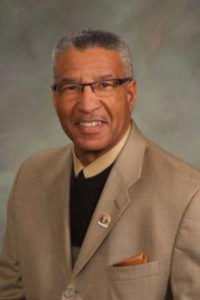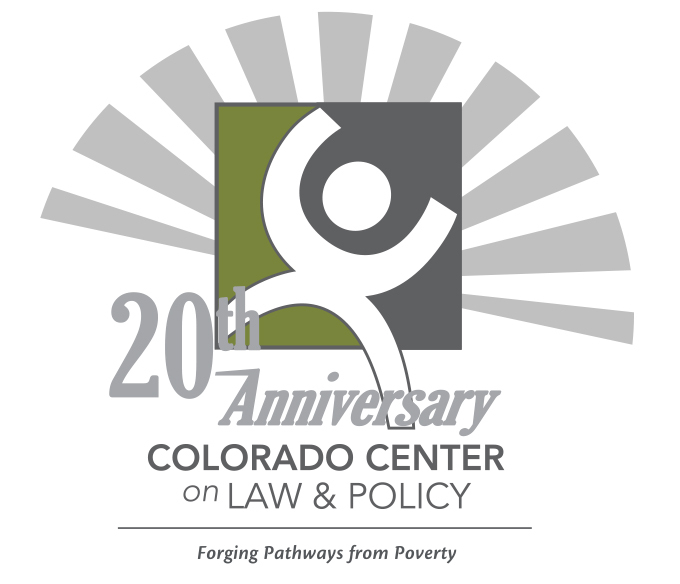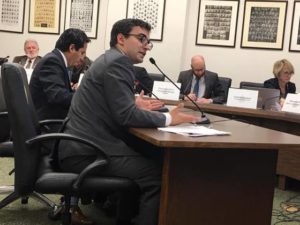
An Interview with Catherine Strode
State Representative Tony Exum is one of 11 siblings. He speaks of growing up in poverty and how that experience shapes his support of legislation. His sponsorship of House Bill 18-1196, “Applications for Aid to the Needy Disabled Program,” is representative of his commitment to serve individuals enduring chronic homelessness, unemployment, and economic need. The bill is targeted to help individuals be verified as having a disability who are homeless due to behavioral health disorders. The bill has passed with strong bipartisan support.
In an interview with Catherine Strode, Representative Exum and Advocate Jack Regenbogon discuss the bill’s importance and impact on low income Coloradans.
You have previously sponsored bills to support the state’s Aid to the Needy Disabled (AND) Program. Why?
“It impacts a good portion of my district. My district is about 50 per cent low income working families that are struggling. I didn’t know the significance of the impact until after we passed the bill in 2014. I was walking the district for reelection and ran into several families who said thank you for the AND bill because I’m one of the recipients. Once they qualify for AND, then they qualify to put their application in for SSI, which is about a five or six hundred dollar benefit.”
How does this year’s bill differ from the one you sponsored in 2014?
“In 2008 with the recession, the benefit was reduced significantly. The benefit was $216 a month; they reduced it to $175 a month. My (2014) bill created a pilot program to help people with their applications. It also increased the aid from $175 to $189, where it is today.”
Where do you draw your passion from for this issue?
“I listen to what my constituents are saying and I know what the needs are. I’ve lived there a long time. I grew up in poverty. The lesson I learned from that is there are people out there to help. It’s help to give you a hand up and not a hand out. I know people are struggling from time to time but they are hardworking people. They just need a little help to get over the hump. When you’re homeless or when you’re living in poverty, $189 could be a gold nugget for somebody. It’s a temporary benefit. It’s never meant to be permanent.”

What has been your role in getting HB18-1196 passed?

“The Colorado Center on Law and Policy works closely with community partners that work on programs such as Aid to the Needy Disabled (AND). Colorado’s program supports folks with disabilities who are experiencing homelessness. AND is a state program that is meant to provide some support to people while they are in the process of applying for federal disability income such as SSI or SSDI. It currently provides for $189 per month. We grew aware of certain issues that were limiting people’s ability to access the Program. Our role was to work with these community partners on developing legislation that would address some of these issues. Our goal is to expand the types of medical providers who are able to verify someone’s inability to work, which is a key stage in the application process.”
What does HB18-1196 do?
“House Bill 18-1196 does two things. It expands the list of providers who are able to verify someone’s disability. It would immediately add psychologists to the list of medical providers who can verify someone’s inability to work. This is a form called the MED 9 form. Currently, it’s just doctors, nurses, and nurse practitioners who are able to sign off of the form. But in many cases, particularly for people that have mental health related disability, it’s their psychologist that is in the best position to assess their functional abilities to work. It’s the psychologist who they might be seeing on a most regular basis and with whom they have that longstanding relationship. The second thing that HB18-1196 does is give discretion to the Department of Human Services to add other licensed providers in the future. When the list of providers changes federally, we won’t have to rely on legislation in order to make those adjustments. It can be affected through a rule change instead.”
What impact will adding psychologists as providers have?
“I think there will be two impacts. One is we are going to see greater parity for people that have mental health related disabilities. If someone has a mental health disability and their primary health care provider is their psychologist, it might be a real struggle to fill out the necessary forms in order to be approved for AND. They have to set up an appointment with a different doctor and have to see (that doctor) several times in order to develop the relationship that would allow the doctor to feel comfortable signing off on this form. This is going to be a real boost to people that have mental health related disabilities by easing a major barrier to access AND. The other impact is that this is going to improve county processing procedures. Currently, counties are responsible for processing AND applications. County workers also have to follow up with clients that are struggling to get a doctor’s appointment. This results in delayed disability verifications. What we would hope to see with this bill is that county processes for evaluating applications will become more efficient.”
 Catherine Strode is Advocacy Denver’s Communications and Policy Specialist. She holds a Masters degree in Public Administration with an emphasis in Health Care Policy. Catherine publishes Policy Perspective, featuring interviews with state policy makers on issues that affect the work and mission of Advocacy Denver.
Catherine Strode is Advocacy Denver’s Communications and Policy Specialist. She holds a Masters degree in Public Administration with an emphasis in Health Care Policy. Catherine publishes Policy Perspective, featuring interviews with state policy makers on issues that affect the work and mission of Advocacy Denver.
